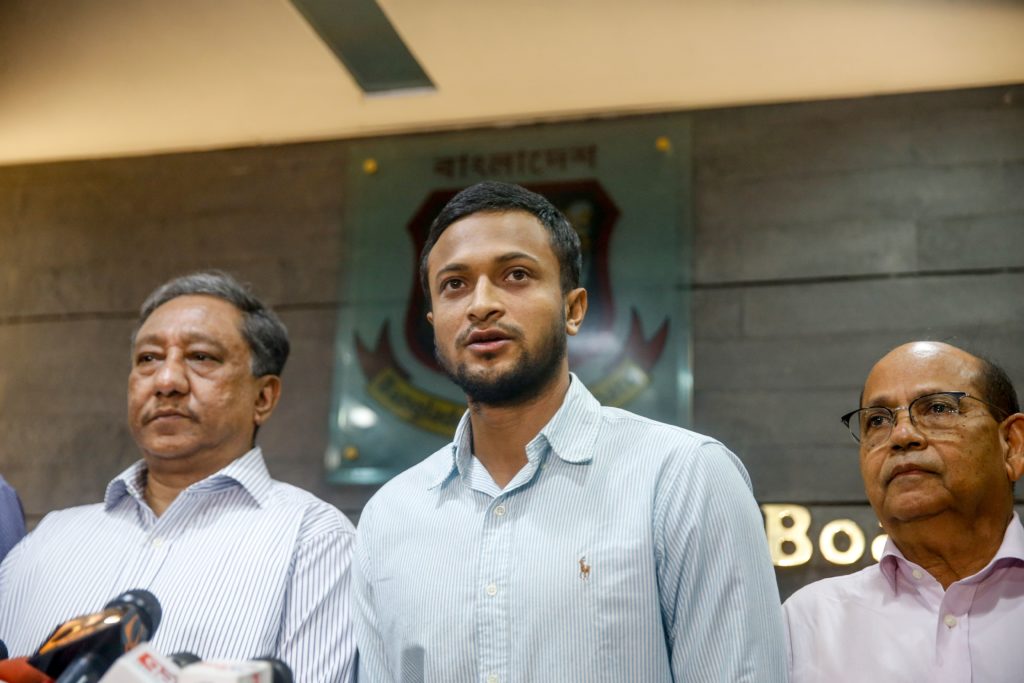With the presence of betting partners and sponsors in sport, it’s no surprise cricketers are still being targeted by bookies, writes GARY LEMKE.
Twenty years ago this April a hastily arranged media conference was held in Durban.
Upon entering the room, one instinctively knew this was something big. The managing director of the United Cricket Board, Dr Ali Bacher, was flanked by UCB president Percy Sonn. Both looked sombre, even shellshocked. Sitting further along the table was Proteas player Shaun Pollock, his eyes bloodshot, as if he’d been crying.
Four days earlier, reports of revered Proteas captain Hansie Cronje had surfaced, vehemently denied. ‘South African captain Hansie Cronje is a man of enormous integrity and honesty. He and his teammates Nicky Boje, Herschelle Gibbs and Pieter Strydom are emphatic there is no substance to allegations that they were involved in match-fixing during the ODI series in India. The UCBSA believes them,’ Dr Bacher had told us.
Cronje said: ‘I have been informed by the UCB of the statements made in the media and I am stunned. The allegations are completely without substance. I have been privileged to play for South Africa since 1992 and I want to assure every South African that I have made 100% effort to win every match I have played in. It has been an honour to play for South Africa and I would never do anything to let my country down.’
Here we were, days later being told the ‘truth’. Cronje had admitted in a 3:30am discussion with Dr Bacher that he had indeed done deals with cricket’s devils that are the underworld bookmakers. Pollock, another God-fearing man, was hastily installed as captain, almost against his wishes, it seemed.
That was 2000. This is now. And cricketers are still dealing with bookmakers. In October the No 1-ranked all-rounder in the world, Bangladesh captain Shakib Al Hasan, one of the stars of the 2019 World Cup, was banned from the sport for two years for failing to report bookmakers’ approaches.
Earlier that month former Proteas batsman Gulam Bodi had been sentenced to five years in jail for his role in a match-fixing scandal, during the 2015 Ram Slam T20. His sticky web also snared Jean Symes, Lonwabo Tsotsobe, Phumelela Matshikwe, Ethy Mbhalati and Thami Tsolekile – who also received bans which effectively ended their playing careers. Another Protea, Alviro Petersen, the whistleblower, was also banned for two years.
Australia’s Emily Smith was handed a one-year ban in November – with nine months suspended – for posting a team lineup on Instagram about an hour before its official release. Her ‘crime’ was she used her phone in the dressing room while the rain pelted down, to tell her followers where she would be batting for the Hobart Hurricanes.
Two decades after Cronje became the first big fish to be hooked by bookies – and snared by authorities – we are still having bookmaker involvement. International cricketers have been jailed in the interim, among them Pakistan’s Mohammad Asif and Salman Butt. And guess what? Bookmaker involvement isn’t going to stop anytime soon.
Consider this: in the English Premier League, 10 of the 20 clubs have betting firms as official shirt sponsors. So, half the clubs are sending a message to the world that gambling on football is the way to go. In South Africa the trend has extended to the media. Many betting companies unashamedly sponsored South African journalists to the Rugby World Cup – basically a freebie, provided the journalist gave plenty of ‘betting insight’.
It should therefore be of little surprise that cricketers – like any other sportspeople – are lured into the world of betting. Some might even place bets, although they wouldn’t openly admit to doing so, but in placing those bets what stops them from betting on their own performances? They don’t even have to engage with a bookmaker. Simply go online and ‘ka-ching’. Betway is even the official betting partner to the Mzansi Super League.
The only surprising thing when we hear of a sportsperson ‘caught’ in some sort of betting scandal is that we’re surprised. Gambling and ‘insider trading’ has never been as easy – or as encouraged – as it is as we head into 2020.







